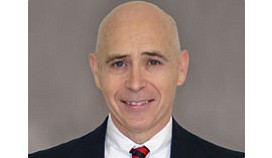Misperceptions prevent some from donating organs
1/26/2018, 12:19 p.m.
By Carolyn Crist
Reuters Health
Although most Americans say they’re willing to be an organ donor after they die, some people never sign up because they’re unsure about what could happen to them in a medical emergency, according to a new study.
In particular, survey respondents reported concerns about receiving adequate medical care if they registered to donate organs after they died.
The medical community needs “to address these misperceptions,” said lead study author Dr. Marty Sellers, a transplant surgeon at Emory University in Atlanta, in a phone interview.
In 2017, more than 10,000 deceased donors contributed to nearly 29,000 transplants in the United States, according to the U.S. Organ Procurement and Transplantation Network. Living donors contributed organs for an additional 6,000 transplants.
But the supply is still far short of what’s needed.
“About 20 people die every day for lack of an organ donor,” said Dr. Sellers, who is also associate medical director of LifeLink of Georgia, a nonprofit that coordinates organ and tissue donation.
Dr. Sellers and colleagues at Emory surveyed 766 people from 37 states about their willingness to be an organ donor after they died, their willingness to donate a deceased family member’s organs and any deterrents to signing up.
Nearly 85 percent of respondents were willing to donate organs after they died, which didn’t differ much by age, gender, religion or location. Willingness to donate a family member’s organs depended on whether families had talked about it before. For example, 95 percent of respondents said they’d be willing to donate a family member’s organs if the loved one had said “yes” during a discussion previously, and 61 percent would donate if no discussion had occurred.
At the same time, 12 percent of survey takers were wary about getting the right medical attention during a life-saving procedure at a hospital if there was potential for organs to be donated. In particular, 20 percent of African-Americans voiced this concern.
But transplant surgeons say health care teams caring for critically ill people are separate from the organ transplant teams.
Dr. Sander Florman, director of the Recanati/Miller Transplantation Institute at Mount Sinai Health System in New York City, told Reuters Health by email, “The doctors taking care of the patient are not the same people involved with the transplant team or the organ procurement organization.”
The transplant team “is only called in when patients meet the criteria for brain death or unrecoverable injuries,” Dr. Florman said.
“A ‘virtual firewall’ separates the care of the patient from the ‘organ donor’ consideration process,” said Dr. Thomas Fishbein, executive director of the Medstar Georgetown Transplant Institute in Washington, in an email.
Howard Nathan, president and CEO of the Gift of Life Donor Program in Philadelphia, told Reuters Health by phone, “The key is helping individuals make individual decisions and getting the myths out of the way. It’s all about neighbors helping neighbors and sharing the positive stories we’ve heard.”
Recently, he said, a woman visited the Gift of Life office to tell her husband’s story of organ donation. He was a fireman who died in the line of duty. His organs were used to save five patients.
“She told our staff it was one of the most important things she could do in honor of her husband who was always saving lives,” Mr. Nathan said.







